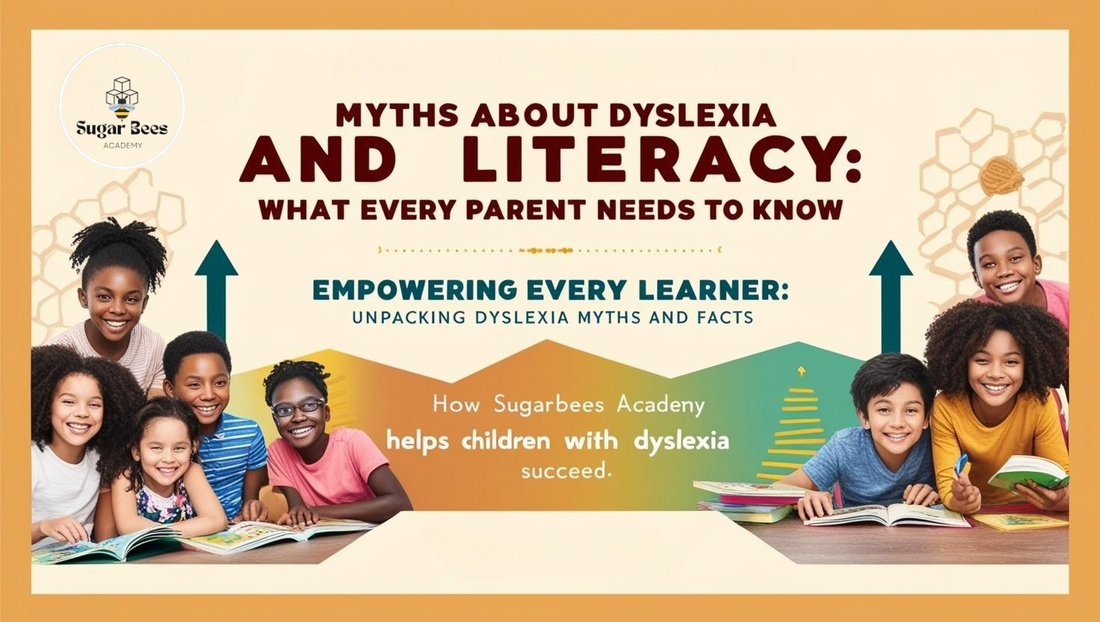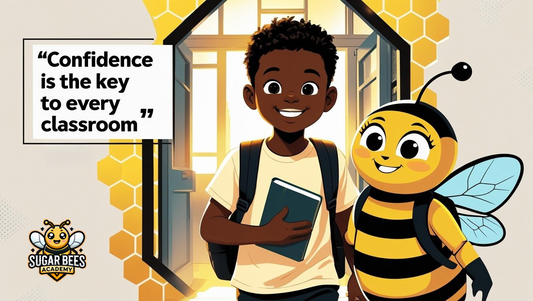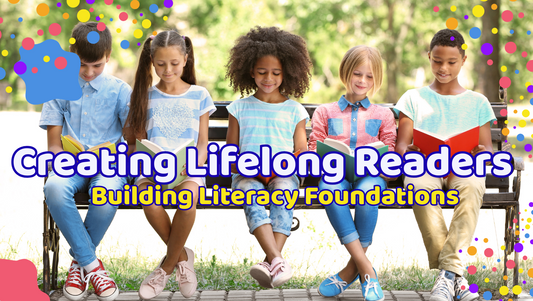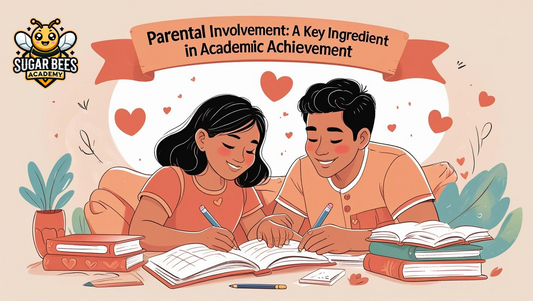
Myths About Dyslexia and Literacy: What Every Parent Needs to Know
Share
Introduction: Understanding Dyslexia
Dyslexia affects millions of children worldwide, yet myths and misconceptions about this learning difference continue to persist. These misunderstandings can lead to unnecessary stigma and prevent children from accessing the support they need to thrive. At SugarBees Academy, we believe that every child deserves the tools and confidence to succeed in reading and learning, including those with dyslexia.
In this blog, we’ll debunk some of the most common myths about dyslexia and literacy and provide parents with insights to help their children succeed.
Myth #1: Dyslexia Means a Child Can’t Read
The Truth:
Dyslexia does not mean a child can’t learn to read. It’s a difference in how the brain processes written language, which can make decoding words more challenging. With the right strategies and support, children with dyslexia can become confident, capable readers.
At SugarBees Academy, our personalized education programs are designed to support children with learning differences, ensuring they build strong literacy skills at their own pace.
Myth #2: Dyslexia Is a Sign of Low Intelligence
The Truth:
Dyslexia has nothing to do with intelligence. Many children with dyslexia have average or above-average IQs. In fact, some of history’s greatest minds—Albert Einstein, Thomas Edison, and Leonardo da Vinci—are believed to have had dyslexia.
What these individuals had in common was resilience and access to tools that allowed them to succeed in their own ways. By providing targeted support, we can help children with dyslexia unlock their full potential.
Myth #3: Dyslexia Is Only About Reversing Letters
The Truth:
While reversing letters like “b” and “d” is a common sign of dyslexia, it’s far from the only symptom. Dyslexia can also affect:
• Difficulty with phonics (connecting sounds to letters)
• Slow or laborious reading
• Trouble with spelling or writing
• Challenges with following sequences or instructions
Recognizing the broader signs of dyslexia is key to ensuring your child gets the help they need.
Myth #4: Children Outgrow Dyslexia
The Truth:
Dyslexia is a lifelong condition, but that doesn’t mean children can’t overcome its challenges. With the right interventions, many children learn to manage their dyslexia effectively and even excel in learning. Early intervention is especially important in giving your child the best chance to succeed.
Myth #5: All Literacy Programs Work for Dyslexic Learners
The Truth:
Children with dyslexia often need specialized approaches to build their literacy skills. Programs that incorporate multi-sensory learning, repetition, and individualized support are more effective for neurodivergent learners.
At SugarBees Academy, our programs are designed with these needs in mind, offering personalized learning plans tailored to each child’s strengths and challenges.
Learn more about how our programs support children with dyslexia.
How Parents Can Help Their Dyslexic Child Thrive
1. Seek Early Assessment
If you suspect your child has dyslexia, early evaluation is critical. Professional assessments can pinpoint challenges and guide you toward the best interventions.
2. Choose the Right Literacy Program
Look for programs that offer individualized support and are designed for neurodivergent learners. The best programs, like those at SugarBees Academy, focus on building confidence as well as skills.
3. Create a Supportive Environment
Encourage your child to view dyslexia as a difference, not a disability. Celebrate their strengths and successes, both in and outside of reading.
4. Use Assistive Technology
Tools like text-to-speech apps or audiobooks can make reading more accessible and enjoyable for children with dyslexia.
5. Stay Patient and Encouraging
Every child learns at their own pace. Celebrate progress and remind your child that challenges don’t define their potential.
How SugarBees Academy Supports Children with Dyslexia
At SugarBees Academy, we’re passionate about creating a safe and empowering learning environment for children with dyslexia. Our programs are:
• Tailored to Individual Needs: Every child receives a customized learning plan.
• Inclusive and Supportive: We celebrate every child’s unique learning style.
• Proven to Work: Our multi-sensory techniques and expert educators ensure that every child has the opportunity to succeed.
Discover how SugarBees Academy can help your child thrive.
Conclusion: Empowering Children with Dyslexia
Dyslexia is not a barrier to literacy success—it’s simply a different way of processing information. By understanding the truth behind common myths and providing the right support, you can help your child become a confident and capable reader.
At SugarBees Academy, we’re here to guide you every step of the way. Our personalized education programs are designed to meet the needs of every learner, ensuring that no child is left behind.



